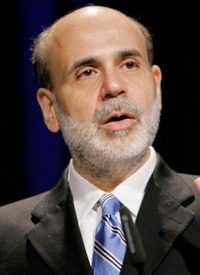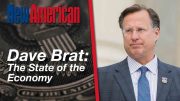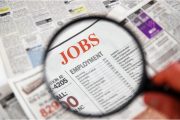
What can he say and, more importantly, what can he do? Jim O’Sullivan with MF Global suggested: “We are not forecasting more easing,” while Tom Porcelli of RBC Capital Markets confirmed, “We expect news out of Jackson Hole will be more about getting a feel for the Fed’s opinion on its easing options.” Analysts at Barclays Capital are expecting Bernanke to “reiterate that the Fed predicts growth to accelerate,” while Capital Economics thinks that he “will probably emphasize that the Fed has the tools to boost the economy if deemed appropriate.” In other words, there will be a lot of words, but little expected in the way of change.
Which is probably very smart in light of the hole the Fed has dug itself in trying to stimulate the economy. As noted in Barrons magazine, Alan Abelson wrote,
The Fed has pretty well used up the better parts of its monetary arsenal. After all, it’s already vowed to keep interest rates effectively at zip for the next two years and, as we’ve seen, two years in this economy and these markets is tantamount to an eternity.
We teeter on the brink of another slump. That was writ clear with last week's release of the Empire Index (which takes the pulse of the New York State area), which was icky, and the Philadelphia Fed's index, which was just plain ugly. The Philly gauge plummeted to minus 30.7 in August, from plus 3.2 in July, the lowest level since the chilly, dark days of March 2009 and the single biggest monthly tumble ever.
In fact, the Business Outlook Survey by the Philadelphia Fed was worse than ugly. The regional survey has served as an excellent proxy not only for the economy as a whole, but as a leading indicator for the economy in the near future. Noting that “regional manufacturing activity has dipped significantly, the survey’s broad indicators for activity, shipments, and new orders all declined sharply from last month.… The broadest indicator of future activity also weakened markedly."
John Mauldin agrees. He has created an economic output index which shows the economy already into recession territory.
Against this backdrop, Bernanke is also faced with what is slowly growing into a sea-change in economic thinking about the Fed and its role in guiding and manipulating the economy. As noted in the liberal Washington Post,
The economic ideology of the Republican Party has changed in recent years in an important and little-appreciated direction. Liberals and conservatives in the United States have long differed on how much the government should meddle in individual markets, whether for energy or health care. But they have largely agreed that the government should have at least some role in smoothing out the ups and downs of the business cycle.
But this is the consensus that many Republicans in effect now reject. In their view, the government has no more role meddling in the business cycle than in any other market.
This is the “Austrian school” of economic thought, which the Post summarizes accurately: “No government planner could know enough about a complex, dynamic economy to competently manage it, and their interference would ultimately lead to a bigger state.… The Austrian view … is now experiencing a renaissance with the tea party movement and among prominent Republicans.”
With unemployment over nine percent officially (unofficially it exceeds 20 percent), no perceptible job growth (except in North Dakota and Texas), huge deficits, a credit downgrade, the emergence of price inflation, and now an increasingly likely continuation of the great recession, Americans are more and more persuaded that the government in general and the Federal Reserve in particular have no idea what they’re doing, except to make things worse. Whatever Bernanke might say in Jackson Hole is less and less likely to resonate favorably among the electorate.
Bernanke may in fact already be instituting an invisible QE3 so that his remarks in Jackson Hole will really mean nothing. Because the Fed has committed to keeping interest rates at zero for another two years, that means that any securities the government must sell to continue to operate at a deficit must be bought by someone. A market free of encumbrances would no doubt, given the recent downgrade, demand a premium over the current rates those securities are paying. So if buyers at not willing to purchase them, that leaves the Fed as the final buyer. With monthly deficits of $150 billion out to the horizon, the Fed already has carte blanche to purchase them. As noted by Bob Eisenbeis, managing director of Cumberland Advisors,
In order for the FOMC (Federal Open Market Committee of the Fed) to keep the funds rate within the desired range, it will have to purchase whatever government debt exists or is issued into the market. This amounts to establishing a defacto QE3 policy without announcing … the amount of securities it intends to purchase. Instead, the amounts purchased will be “whatever it takes”….
Since the government would have to issue even more debt to make up the difference between the new spending and revenues collected … this would put upward pressure on interest rates, were it not for the Fed’s commitment to keep rates low through the 2012 election and into 2013.
Bernanke’s upcoming remarks at Jackson Hole are a side show. The policy to devalue the dollar through inflation is already in place, and will continue as long as the dollar has any purchasing power left. When that purchasing power goes to zero, then the invisible QE3 will end.
Photo of Ben Bernanke: AP Images



